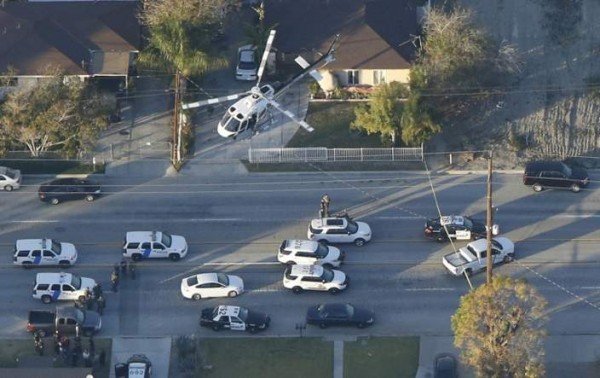(Cyberwar.news) With all of the ruckus over whether or not Apple, Inc., ought to provide federal investigators with “backdoor” technology so they can get a peek inside one of the San Bernardino, California terrorists’ cellphone, it turns out that there should have already been a way in that would have involved the installation of common, over-the-counter technology.
But the county government that owned the iPhone never installed it, however, even though they paid for it.
As reported by The Associated Press, Apple is now involved in a high-profile legal battle with the Justice Department, with the latter having filed court action to require the company to provide access to an iPhone used by one of the dead gunmen, Syed Farook. Apple has said doing so would violate the company’s pledge to protect phone owners’ digital privacy.
But the county government could have installed technology known as mobile device management, which would have allowed San Bernardino officials to remotely unlock the phone for the FBI without the fanfare of a court battle. The service costs $4 a month, per phone.
Instead, however, Farook was the only person who knew the unlocking passcode for the phone he used when he worked as an inspector in the county’s public health department.
His iPhone also lacked a Touch ID feature, so the FBI can’t use the dead terrorist’s thumbprint to unlock it, either. Agents found the phone in a car following the murders.
Last week a U.S. judge ordered Apple to provide the FBI with highly specialized software that could be loaded onto the iPhone 5C. The FBI says the software would help agents hack into the phone by bypassing a security time delay and feature that wipes out all data on the device after 10 unsuccessful attempts at entering a passcode.
The AP noted that the software would allow the FBI to utilize technology to quickly and repeatedly test numbers in what is called a brute force attack.
The Justice Department said it wants to see whether Farook used the county-provided phone to contact known terrorist elements in regards to the attack.
FBI Director James Comey has said that his agency owes it to the victims of the attack to gain access to the cellphone’s stored data in an attempt to find out more about the attacker and anyone who may have helped him.
In a message posted Sunday night on the Lawfare blog, Comey said the FBI “can’t look the survivors in the eye, or ourselves in the mirror, if we don’t follow this lead.” He added that the court case “isn’t about trying to set a precedent” but rather about ensuring justice for victims.
Apple has argued that providing a backdoor into its iPhones will also give astute hackers access to them as well, as they will eventually discover it. As such, the company says it plans to fight the FBI in a bid to preserve digital privacy.
Other experts, as well, have said that backdoor technology actually makes electronic products less safe.
As the AP reported further:
San Bernardino had an existing contract with a technology provider, MobileIron Inc., but did not install it on any inspectors’ iPhones, county spokesman David Wert said. There is no countywide policy on the matter and departments make their own decisions, he said.
In an interview with ABC’s “This Week” on Sunday, Ted Olsen, a lawyer for Apple, said the legal fight with the Justice Department brought forth an important debate over privacy and civil liberties as they pertain to national security. However, he said there would be no limiting to what the federal government could require Apple to do in the future if the FBI wins this legal battle.
“Apple has a responsibility to maintain the trust and faith of millions of people who’ve depended upon Apple to produce a product that protects their privacy — their intimate, personal life,” said Olson, a former solicitor general under President George W. Bush. “This is a Pandora’s box.”
See also:
Cyberwar.news is part of the USA Features Media network of sites.


